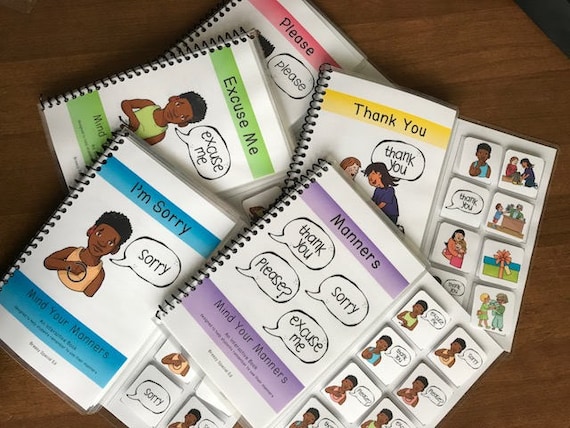I recently had a question about what kinds of forms I keep on my clipboards so I snapped a couple of pictures. Mostly, I have data sheets to collect data on IEP goals. And also a few behavior data sheets.
This year I wanted to make my data sheets as easy to collect data as possible, so I tried to make it more specific than before and also circling instead of writing when possible. Make it easier for everyone, and also makes the data more reliable. Got that idea from one of my ABA enthusiastic colleagues.
Here's a couple examples:
They aren't perfect - but they are a start and I hope they turn out useful! How do you collect data on IEP goals?
One of my behavior data sheets is currently tracking swearing frequency of one of my students. So far the most PHRASES (not words) uttered was 70....in one class period. That will be a fun one :)
Also, I just updated my schedules on the post before for those of you who wanted to see better pictures and more details - hope that helps!
Update: My prompt levels key is listed below. (This was copy and pasted from some article I read - with just some minor changes I made. If you know where I got it, please let me know so I can give credit!)
Prompt Levels or Prompt
Hierarchy
+ independent The student does the task or the
step with no help or hints of any kind.
IV indirect verbal Ask a question that makes them think
about it. “What do you need to do?” “What is next?” “What time is it?”
G gesture Point to the item they need. Point to
the door if you should be leaving, point to the calculators if they need to get
a calculator.
DV direct verbal The student does the task after
being told exactly what to do. “You need to…”
M model The student does the task after you
show them how to by doing the task yourself. For example, you wipe off the
counter and then stand aside to let them try it.
PP physical prime The student does the task after you
move them toward it. For example, you touch their elbow to get them to pick up
a pencil.
FP full physical The student does the task while you
hold onto their hand or wrist and do it with them.Need a place to start? Make a copy of this generic goal sheet and edit away to meet the needs of your goals!













Helpful post! Can you share what your codes stand for?
ReplyDeleteMelissa Reed
Mrs. Reed's Resource Room
www.reedsresourceroom.blogspot.com
I have added them. Hope that's helpful!
DeleteDo you track constantly? or daily? Do you do all goals each time? My classroom has changed so much these past few weeks due to students moving in and out that's it's been crazy trying to just do beginning assessments. Are these kids you have had for a while?
ReplyDeleteBehavior is tracked daily, as it happens.
DeleteIEP goals I hope to track at least once a week. My students have so many goals/objectives, it would be hard to do them all each day, plus I have other things I want to work with them on as well.
Also, this is the first year I have had these students. Another teacher and I switched students this year...
I'm curious about your IEP objectives are they standards based? I was told we have to use standards to write our IEP's but it's hard when the students are more at a functional level.
ReplyDeleteWe also have to use the standards...but when you have high school students who are functioning at maybe a kindergarten level, it's kinda hard to really match to the standards! I just use the standard title (ex. number and quantity) to match to the goals I feel are appropriate for my students (ex. count to 10). It's a bit of a stretch, but what other options do we really have? Also, the SEL standards are great to use for a lot of functional goals!
DeleteI just found your blog and I am blown away by these!! Thank you for sharing. Do you mind if I quote you or your resources on my page? I'm just getting started with this.
ReplyDeleteThanks!!
Thanks Kim! Yes that would be great! A link back is appreciated :)
DeleteDo you have an electronic copy of your data sheets? I tried to create my own from your previews above and oh my goodness it was crazy. Thanks
ReplyDeleteHere. I made a sample real quick. The trick is to insert a table! Copy into a new document and edit away! https://docs.google.com/document/d/13TRXmJwzsw58r7avdpPZxMSi9H8fGilNCqrtz59-JHw/edit?usp=sharing
DeleteThank you for sharing all of this information! Your page is a great tool and resource.
DeleteI love your form for greeting peers throughout the day. I am always looking for better ways to track social skills and Assistive technology usage.
ReplyDeleteWOW! These are fantastic. I have been struggling with figuring out how to keep solid data on my students' goals, and I think I have just found the solution. Keeping clipboards like this will actually get their data out of their files and into their everyday routines.
ReplyDeleteI love your prompt cues and your data sheet for greetings! What a great post!
ReplyDeleteI love your prompt cues and your data sheet for greetings! What a great post!
ReplyDelete